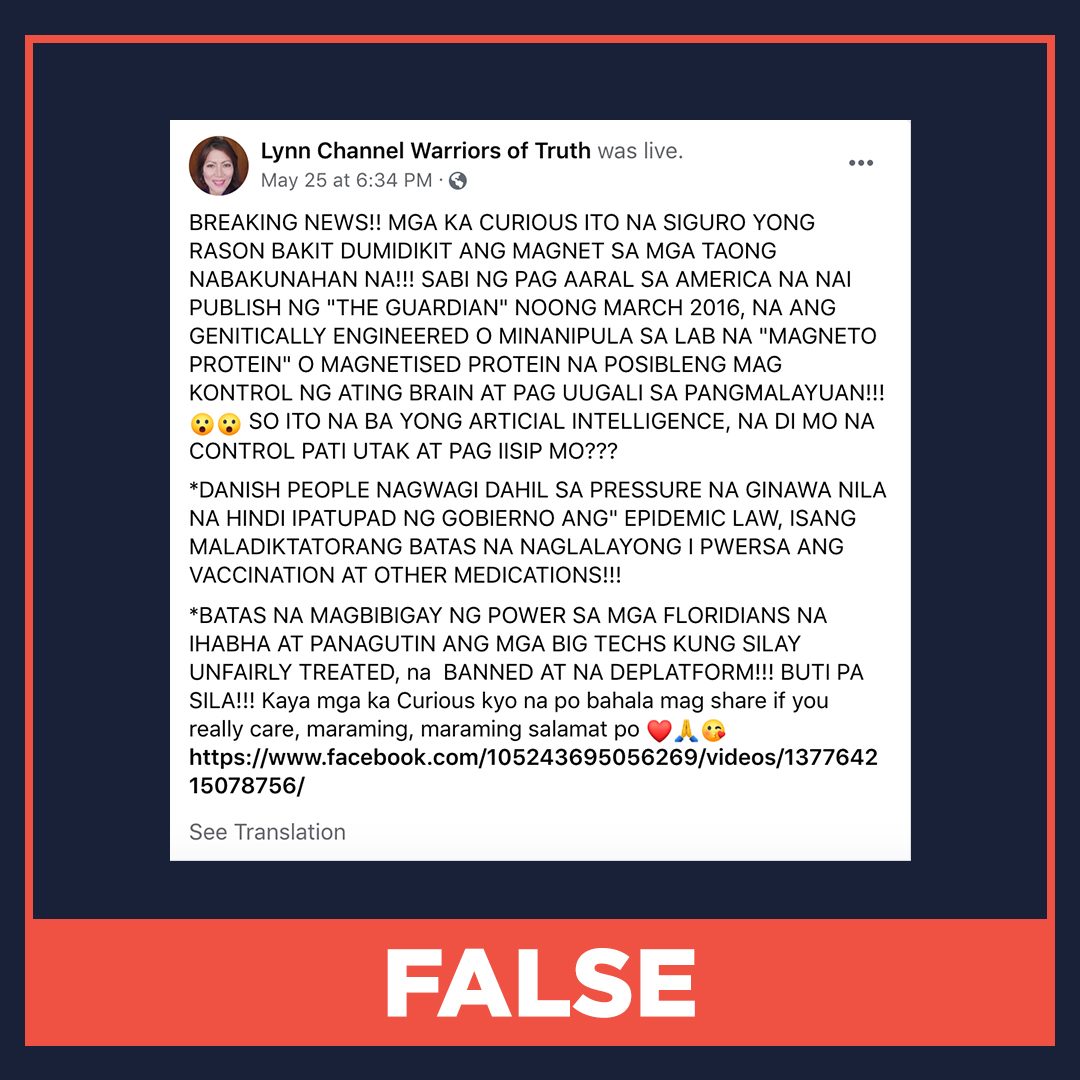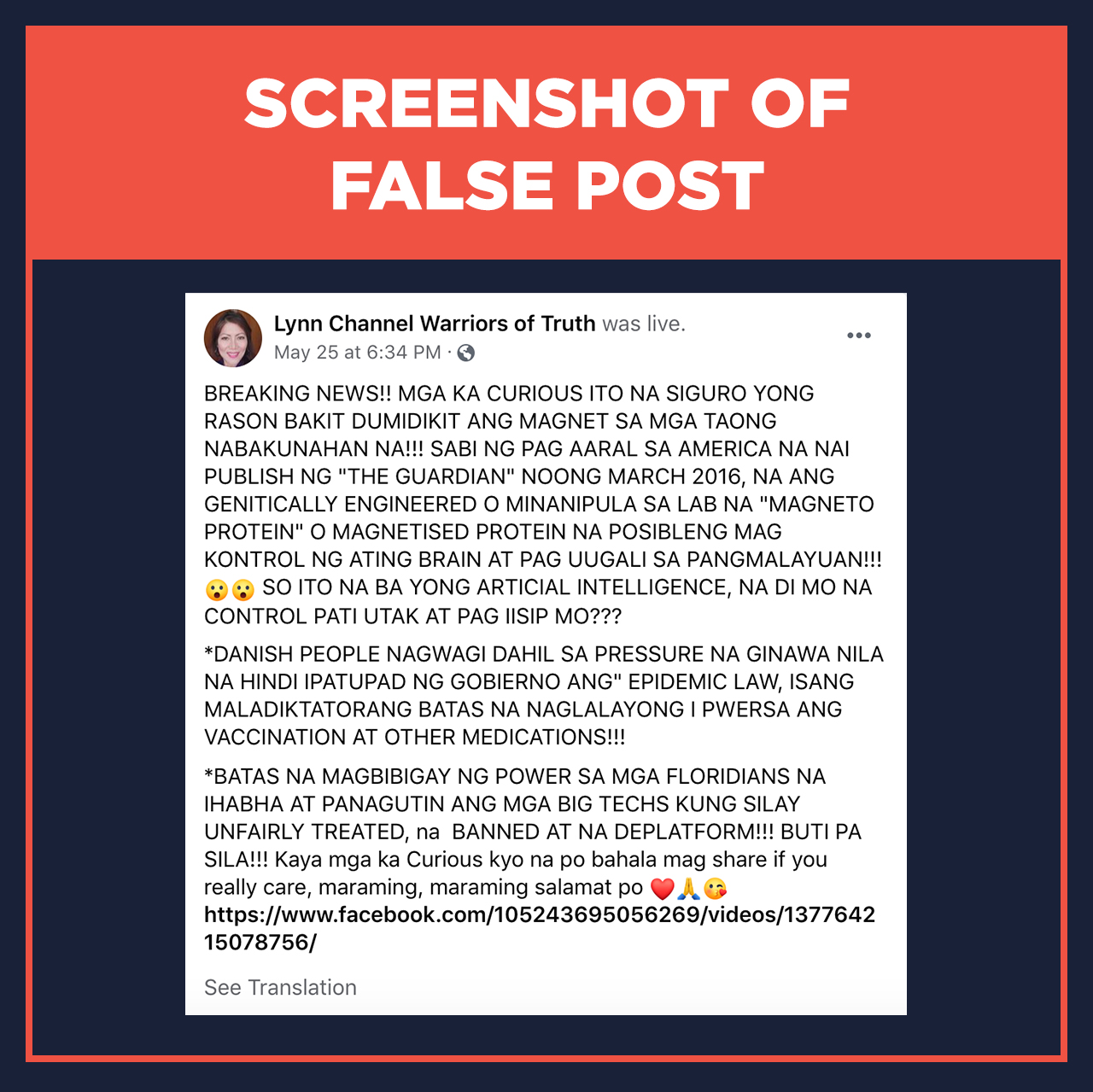SUMMARY
This is AI generated summarization, which may have errors. For context, always refer to the full article.

At a glance
- Claim: A video posted on Facebook on Tuesday, May 25, claimed that people who received COVID-19 jabs become “magnetic.” This can supposedly be detected by attaching magnets to one’s upper arm after getting vaccinated.
- Rating: FALSE
- The facts: The videos shown are of TikTok users participating in a viral “magnet test challenge.” Experts have also said vaccine doses are too small and therefore not strong enough to cause magnetic reactions.
- Why we fact-checked this: This Facebook post was sent to Rappler for verification. The video has over 2,100 likes and 3,700 shares, as of writing.
Complete details
A video posted by Facebook page “Lynn Channel Warriors of Truth” on Tuesday, May 25, claimed that COVID-19 vaccines make people “magnetic.” This can supposedly be detected by attaching magnets to one’s upper arm after getting vaccinated.

At around the 15:15 mark in the video, Facebook personality Lynn Agno starts showing videos of people vaccinated against COVID-19 with magnets sticking to their upper arms.
In her video, Agno also misleadingly cited a 2016 article from The Guardian, entitled “Genetically engineered ‘Magneto’ protein remotely controls brain and behaviour” to support her claims.
The video has over 2,100 likes and 3,700 shares, as of writing.
This is false.
The videos shown in Agno’s broadcast are of TikTok users participating in a viral “magnet test challenge.” The videos on the platform have earned thousands of views as of writing.

The 2016 article Agno cited was written pre-coronavirus pandemic. It discussed how researchers found that a certain magnetic protein could “remotely control the firing of neurons” and could “control complex behavior.” There are no reports on the said protein being present in COVID-19 vaccines.
Among the COVID-19 vaccines approved in the Philippines, only two vaccines contain traces of magnetic metals. The AstraZeneca and Sputnik V vaccines contain safe amounts of magnesium. Physicists and medical experts have said that, even if vaccine formulations contained magnetic metals, vaccine doses are too small and therefore not strong enough to cause magnetic reaction.
Several international news and fact-checking organizations have also said the viral challenge does not provide evidence of a magnetic reaction.
British fact-checking company Full Fact said it’s more likely the magnets are sticking due to moisture on the skin’s surface. An expert interviewed by BBC’s Reality Check section said people could also be using other adhesives such as band-aid residue to keep the magnets in place.
Rappler has fact-checked another Facebook page by Agno, “Lynn Channel,” multiple times before. – Alois Isinika and Gaby Baizas/Rappler.com
Keep us aware of suspicious Facebook pages, groups, accounts, websites, articles, or photos in your network by contacting us at factcheck@rappler.com. Let us battle disinformation one Fact Check at a time.
Add a comment
How does this make you feel?
There are no comments yet. Add your comment to start the conversation.